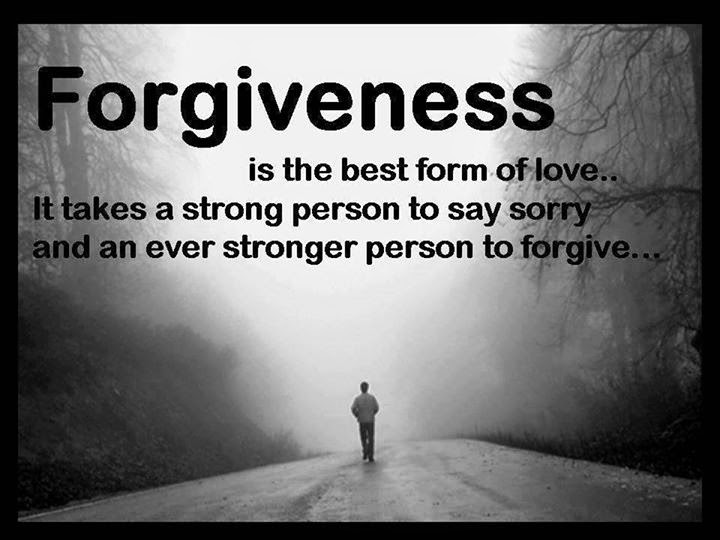In the intricate tapestry of human existence, the threads of forgiveness weave a singular pattern that not only assuages the spirit but also liberates the soul. The Bahá’í teachings, profoundly rooted in the imperative of forgiveness, advocate for this noble and transformative act as a pathway to personal and communal harmony. The notion of forgiveness can be perceived as an ethereal bridge, connecting the often tumultuous shores of heartache and resentment to the tranquil lands of peace and self-contentment.
Forgiveness, at its essence, is akin to an alchemical process. It possesses the potential to transmute the base metals of anger, disappointment, and betrayal into the gold of understanding, empathy, and love. This analogy draws us into a deeper appreciation of the disquiet that festers within the human heart when one clings to grievances. The Bahá’í perspective posits that harboring grudges is not merely an emotional burden; it is a self-imposed prison that confines one’s capacity for joy. Herein lies the initial invitation: to recognize the gravity of holding onto pain and the freedom that can be attained through its release.
Central to the essence of forgiveness is the conscious act of confronting one’s inner turmoil. The Bahá’í teachings elucidate the importance of self-reflection as a catalyst for this transformational journey. To forgive another is, first and foremost, to engage in an introspective reckoning with oneself. This process necessitates an acknowledgment of one’s own fallibility and, crucially, the understanding that every human being is a pendulum oscillating between greatness and frailty. Just as a river flows, carving its path through solid rock, so too must individuals allow their hearts to flow freely, unimpeded by the rigid formations of past grievances.
Moreover, forgiveness acts as a collective balm, capable of healing the wounds of society at large. The Bahá’í community underscores the interdependence of humankind and the imperative of fostering unity through understanding. In this light, forgiveness becomes not merely an individual pursuit but a communal obligation. When individuals forgive, they extend the metaphorical olive branch to others, dissolving barriers that divide and cultivating an environment conducive to mutual respect and collaboration.
The practice of forgiveness can be likened to the cultivation of a garden. Just as a gardener diligently tends to the soil, nurturing the roots and clearing away the weeds that hinder growth, so too must individuals actively cultivate forgiveness within their own lives. This involves a proactive commitment to nurturing positive relationships, confronting misunderstandings with compassion, and recognizing the intrinsic worth of others, despite their imperfections. In doing so, one sets the stage for personal growth and enriched interpersonal interactions.
To illustrate this, consider the concept of an orchestra. Each instrument, though distinct and unique, contributes to the overall harmony of the composition. In a similar fashion, the diverse narratives of individuals, often colored by pain and misunderstanding, can culminate in a beautiful symphony of collective experiences when forgiveness is practiced. By choosing to forgive, each individual becomes a note, harmonizing with others to create a resonant melody that elevates the human experience.
Delving deeper into the intricacies of forgiveness, the Bahá’í writings advocate for the practice of seeing with the eyes of empathy. This empathetic perspective invites individuals to step into the shoes of those who have wronged them, fostering a profound understanding of the complexities that underpin human behavior. When one recognizes that every individual carries their own burdens, trials, and tribulations, the act of forgiveness transforms from a mere absolution of wrongs to a compassionate acknowledgment of shared humanity.
While the journey towards forgiveness is often fraught with challenges, it is essential to remember that the act is not contingent upon the actions or attitudes of others. Rather, it is a profound choice—an expression of agency that liberates the forgiver from the shackles of anger and resentment. In the Bahá’í paradigm, forgiveness emerges as a selfless act that is imbued with love. It is a choice that not only rejuvenates the soul but also enhances the collective well-being of community.
In moments of strife, it is common for individuals to grapple with the intricate dynamics of betrayals and misunderstandings. In these instances, the Bahá’í teachings serve as a guiding light, reminding us that forgiveness is a reflection of our own inner strength. It is a testament to the capacity of the heart to overcome adversity. Thus, even in the face of profound hurt, the transformative power of forgiveness endows individuals with the ability to transcend pain, fostering a sanctuary of peace amidst the turbulence of life.
Ultimately, the teachings espouse that true forgiveness is not an ephemeral act, but rather a sustained commitment to personal and communal growth. It demands resilience, introspection, and a willingness to embrace reconciliatory dialogue. In doing so, individuals not only liberate themselves from the chains of bitterness but also embody the aspirational qualities of compassion and understanding, thereby contributing to a more harmonious society.
In the final analysis, to embrace forgiveness is to unshackle oneself from the weight of animosity and resentment. It is an acknowledgment that to live meaningfully, one must release the burdens that inhibit love and connection. The Bahá’í exhortation to forgive stands as a profound reminder—a clarion call to elevate the human spirit, affirming that in forgiveness, we find not only solace for ourselves but a pathway to a shared future imbued with unity and peace.
